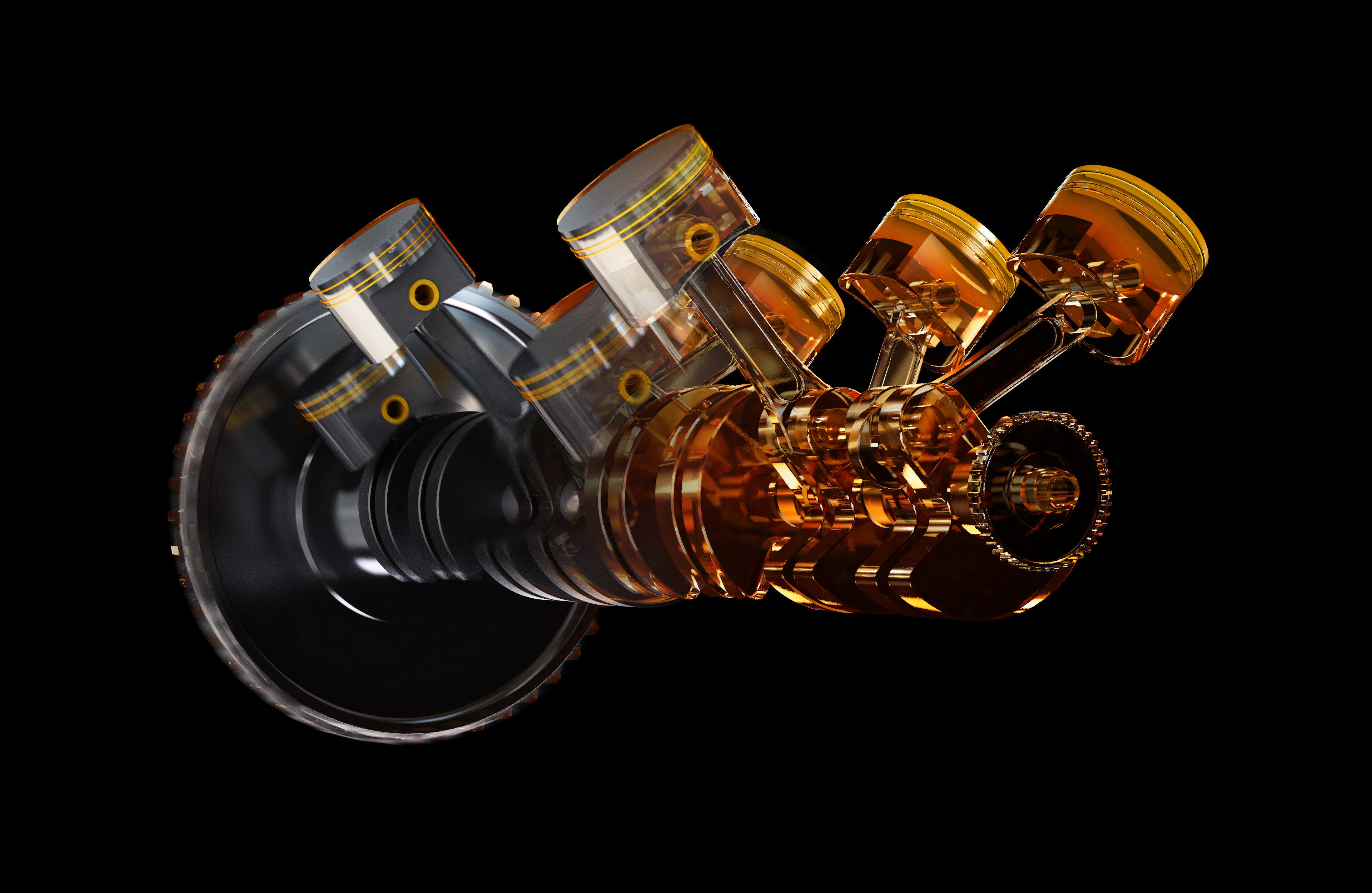


Engine oil plays a crucial role in keeping a vehicle’s engine running smoothly and efficiently. However, base oil alone is not enough to provide complete protection and performance. This is where engine oil additives come into play. These chemical compounds are blended with lubricating oils to enhance their properties, ensuring optimal engine function, reduced wear and tear, and improved fuel efficiency.
In this guide, we will explore the different types of engine oil additives, their functions, and how they contribute to enhancing engine performance. Understanding these additives can help car owners make informed decisions about maintaining their vehicles and selecting the best engine oil additive for long-term performance.
Engine oil additives are specialized chemical compounds added to base oils to enhance lubrication, reduce wear, and maintain engine cleanliness. These additives generally make up 10-30% of an engine oil formulation, depending on the specific application and the performance requirements.
By choosing the best engine oil additive, car owners can extend the life of their engine, improve efficiency, and reduce maintenance costs.
There are several types of engine oil additives for cars, each designed to address specific engine requirements. Understanding their functions can help vehicle owners select the right combination for their needs.
The viscosity of engine oil changes with temperature. In cold conditions, oil can become too thick, making it difficult for the engine to start. In hot conditions, oil can become too thin, reducing its ability to lubricate and protect engine parts. Viscosity Index Improvers help oil maintain a consistent viscosity across a range of temperatures.
These additives are especially important in modern multi-grade engine oils, ensuring that the oil performs well in both high and low temperatures. By stabilizing the oil’s viscosity, VI improvers help reduce engine wear, improve fuel efficiency, and enhance overall performance.
Detergents are essential for keeping an engine clean. Over time, carbon deposits, sludge, and varnish can accumulate on engine components, reducing efficiency and increasing wear. Detergent additives help neutralize these contaminants and prevent their buildup, ensuring that the engine operates smoothly.
These additives are particularly important for high-mileage vehicles and engines that operate under extreme conditions, as they help maintain internal cleanliness and prevent performance degradation over time.
While detergents clean surfaces, dispersants work to keep contaminants suspended within the oil so that they do not settle and form sludge. Without dispersants, dirt, soot, and oxidation by-products could accumulate, leading to clogged oil passages and reduced lubrication efficiency.
Dispersants are particularly useful in diesel engines, where soot buildup is a common issue. By keeping contaminants in suspension, these additives help prolong oil life and reduce the risk of engine damage.
Oxidation occurs when oil is exposed to oxygen at high temperatures, leading to the formation of sludge and varnish. Antioxidant additives slow down this oxidation process, helping to extend the lifespan of engine oil and maintain its protective properties.
By preventing oil degradation, antioxidants contribute to better engine cleanliness, improved lubrication, and reduced maintenance costs. These additives are essential for vehicles that operate under high-stress conditions, such as heavy-duty trucks and performance cars.
Friction between moving metal components can lead to wear over time, reducing engine efficiency and increasing the risk of damage. Anti-wear additives create a protective film on engine surfaces, reducing direct metal-to-metal contact and preventing excessive wear.
These additives are particularly important in high-performance and high-mileage engines, where reducing friction is crucial for long-term reliability. Phosphorus-based compounds like zinc dialkyl dithiophosphate (ZDDP) are commonly used as anti-wear agents, providing excellent protection under extreme pressure conditions.
Friction modifiers help reduce internal engine friction, leading to better fuel efficiency and smoother operation. By altering the interaction between moving surfaces, these additives help engines run more efficiently and minimize energy loss.
Many modern synthetic engine oils contain friction modifiers to optimize fuel economy, making them a popular choice for drivers looking to improve performance while reducing fuel consumption.
Moisture and contaminants in the oil can cause metal surfaces inside the engine to rust or corrode over time. Corrosion inhibitors form a protective barrier on metal components, preventing oxidation and extending engine life.
These additives are particularly important for vehicles that are not used frequently or are stored in humid conditions, as they help protect the engine during periods of inactivity.
When oil is agitated during operation, it can produce foam, reducing its ability to lubricate effectively. Foam inhibitors prevent excessive foaming, ensuring that the oil remains stable and provides consistent protection.
Foaming can be a serious issue in high-performance engines and industrial machinery, where rapid movement and high-pressure conditions can lead to air entrapment in the oil. By eliminating foam, these additives help maintain optimal oil performance.
In cold weather, engine oil can thicken and become sluggish, making it difficult for the engine to start. Pour point depressants lower the oil’s freezing point, ensuring that it flows easily even in extreme cold.
These additives are especially useful in winter-grade engine oils, preventing cold start issues and reducing startup wear on engine components.
Selecting the right engine oil additive for a car depends on several factors, including:
Using the best engine oil additive can improve performance, reduce wear, and extend oil change intervals, leading to cost savings and better long-term engine health.
Engine oil additives are crucial for optimizing engine performance, minimizing wear, and ensuring long-term efficiency. The right additives can help improve fuel economy, extend oil life, and protect your engine from harmful deposits and corrosion.
For premium engine oil additives that offer superior protection and performance, Finozol provides expertly formulated solutions tailored to your specific needs. Contact Finozol today to discover the best additive for your engine and ensure your vehicle operates at its peak.